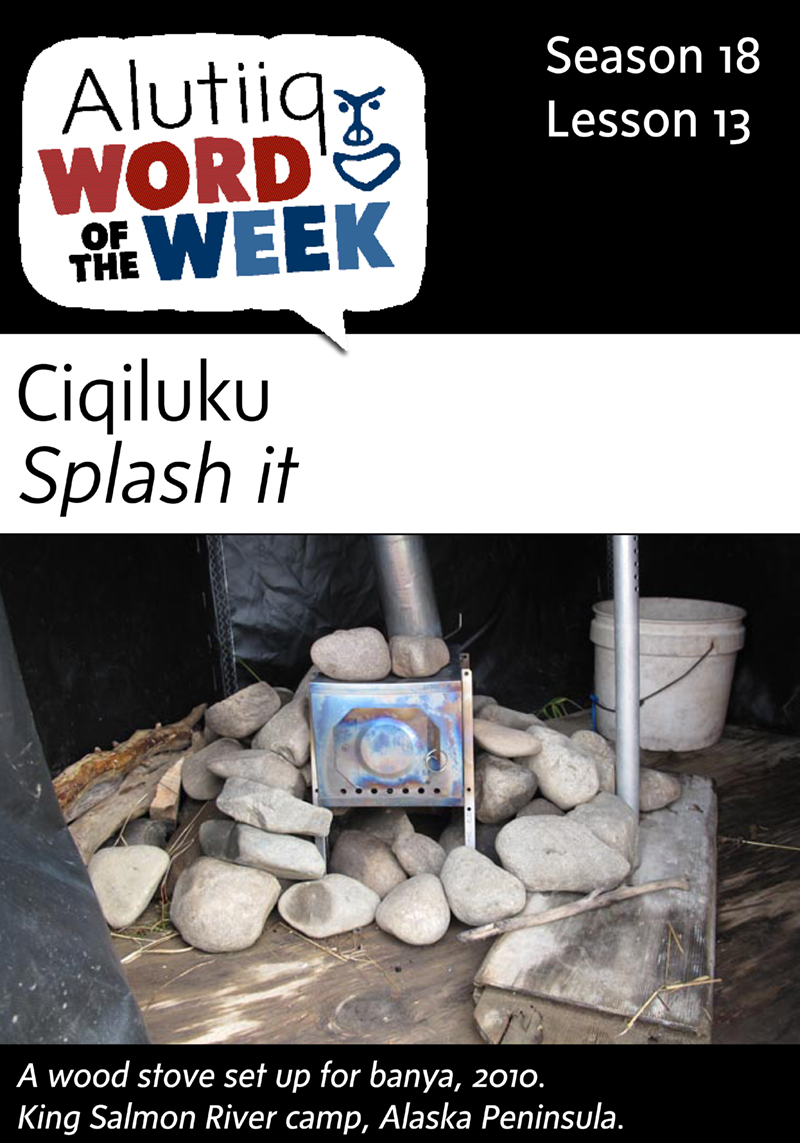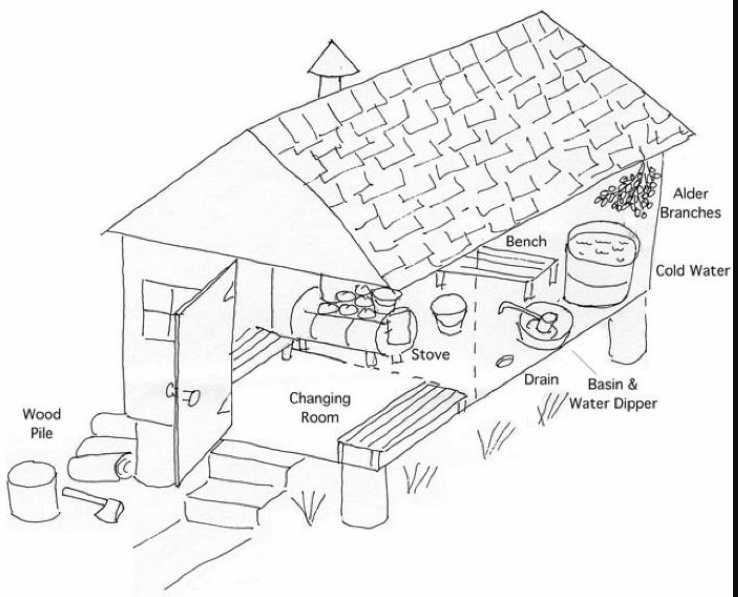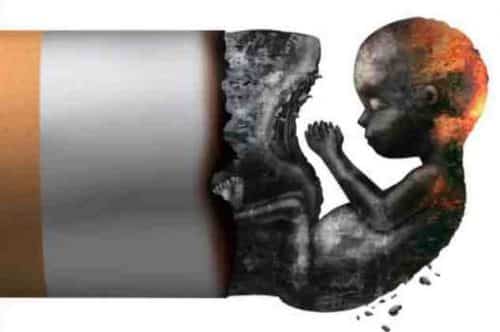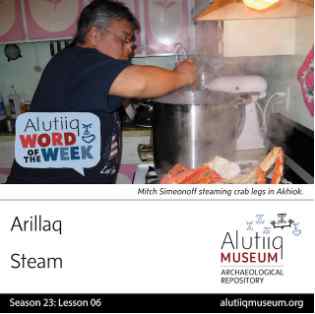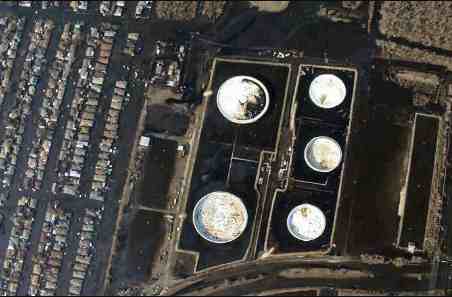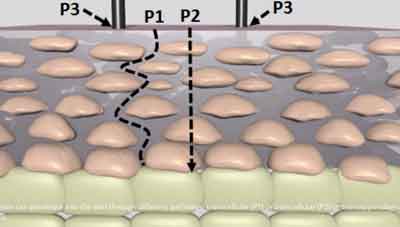Yaamat ciqiki. – Splash the rocks.
It’s Saturday evening and curls of smoke drift from the small shed next to an Alutiiq home. It is banya night and a family has lit the woodstove in their bathhouse to heat rocks and water for washing. Inside, smooth, water-worn beach cobbles cover a stove fashioned from an oil drum and surrounded by tubs of fresh water. When the rocks are hot, family members take turns washing, splashing the rocks to create refreshing steam.
Extended family, neighbors, and visitors of all ages may participate. The oldest married couple usually washes first, followed by other married couples, then groups of single men, single women, and finally young people and guests. Washing is a leisurely activity, filled with visiting. It can take many hours.
The heat of the banya is always a subject of conversation and personal preference. Some people like a steamy banya. Others prefer it dry. People who enjoy a lot of steam might choose to banya together, or to banya later in the evening when the steam bath has had a long time to build heat. Splashing the rocks creates a more humid banya, but if you splash the rocks too much, they will eventually cool down. This is thought to be inconsiderate, as it can cause the banya to cool uncomfortably. The next bathers may not have enough heat.
For banya rocks, Alutiiq people commonly choose rounded cobbles. Water-worn rocks are easy to carry and stack and they are less likely to explore. Elders warn against using layered rocks like shale or slate in the banya because water can seep between the rock’s layers and cause the stone to shatter as it expands in the heat. This can send dangerous fragments of hot stone flying through the air. Elders also advise that rocks should be free of salt because salt can also cause them to explode. They teach that it is better to collect banya rocks from a riverbank than the beach.
Source: Alutiiq Museum


